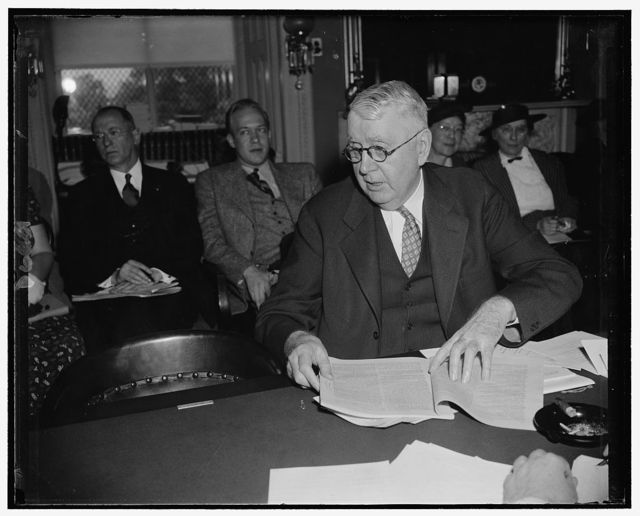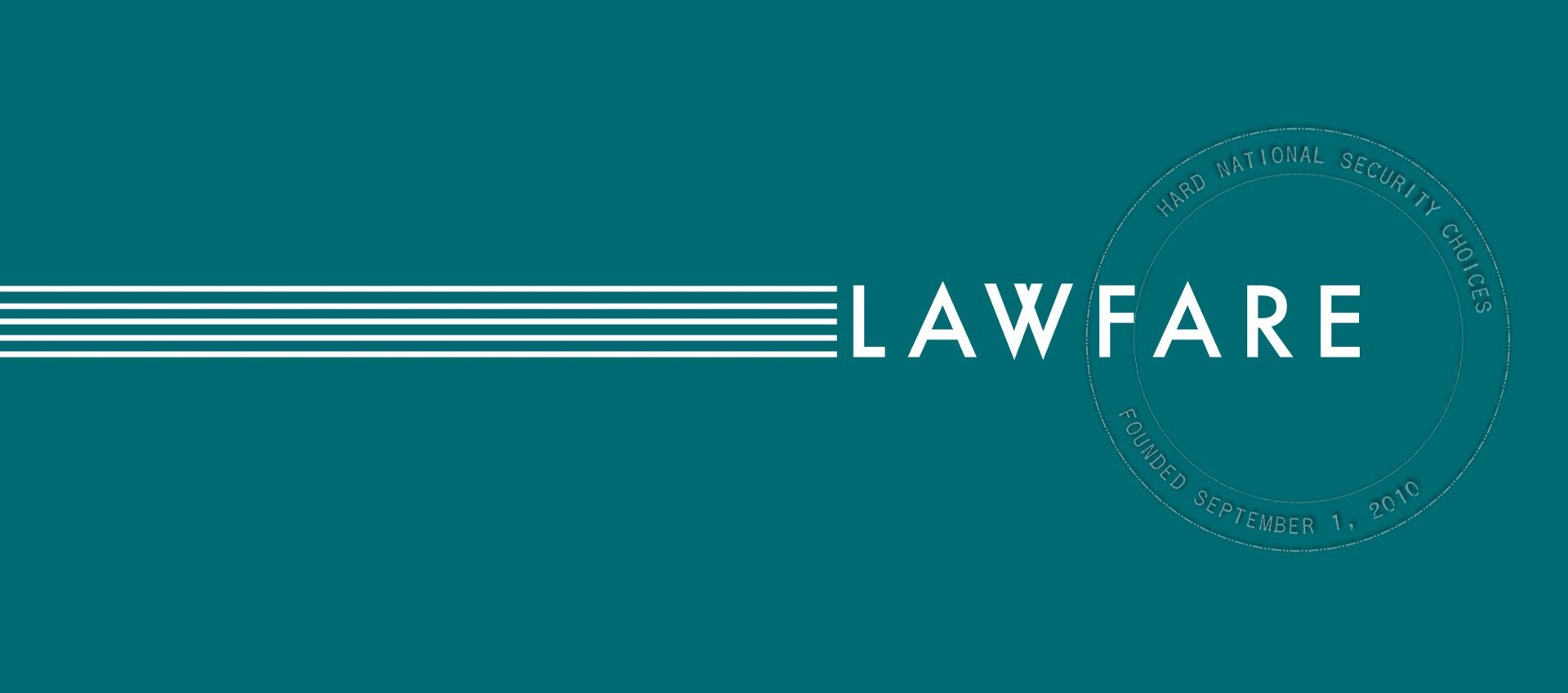Remembering the Ludlow Amendment
Few people today have ever heard of the Ludlow Amendment—a radical proposal that would have required a popular referendum before Congress could declare war and which lost a critical House vote on this date in 1938. The proposal was the closest the United States ever came to formally amending the Constitution’s allocation of war powers, and it would have revised them in exactly the opposite direction in which their interpretation has evolved in practice since the amendment’s defeat.

Published by The Lawfare Institute
in Cooperation With

Few people today have ever heard of the Ludlow Amendment—a radical proposal that would have required a popular referendum before Congress could declare war and which lost a critical House vote on this date in 1938. The proposal was the closest the United States ever came to formally amending the Constitution’s allocation of war powers, and it would have revised them in exactly the opposite direction in which their interpretation has evolved in practice since the amendment’s defeat.
It’s well known that, over time, presidents have asserted and exercised far more power to initiate military hostilities abroad than the constitutional Founders anticipated or desired. (For more on this issue, see Michael Beschloss’s recent book “Presidents of War,” which I reviewed for Lawfare in November). The policy merits of this evolution are hotly debated, with its strongest critics often arguing for reassertion and enforcement of Congress’s “declare war” power. In the modern debate, one end of a spectrum takes the position that lodging decisions to use force abroad in Congress best restrains United States military adventurism and ensures public deliberation. World War I, out of which the Ludlow Amendment grew, is also mostly remembered today as a case in which the original constitutional war-declaration system worked pretty well: After much political deliberation and diplomatic effort to stay out of it, escalating events pushed President Wilson to seek a congressional war declaration, and Congress promptly did so by wide margins.
But, after World War I, Democratic Rep. Louis Ludlow of Indiana, like many Americans, thought that even the original scheme of vesting war-making decisions in Congress was too permissive and detached from popular will. They thought the constitutional framework had failed in World War I. Members of this movement thought that a jingoistic press and munitions-industry profiteers had pressured the government into an unnecessary European war—the burden of which fell on the general public while industry elites reaped their reward.
Although the idea had been percolating since early in the 20th century, in the mid-1930s Ludlow proposed and advocated for the following constitutional amendment:
Except in the event of an invasion of the United States or its Territorial possessions and attack upon its citizens residing therein, the authority of Congress to declare war shall not become effective until confirmed by a majority of all votes cast thereon in a Nation-wide referendum. Congress, when it deems a national crisis to exist, may by concurrent resolution refer the question of war or peace to the citizens of the States, the question to be voted on being, Shall the United States declare war on _____? Congress may otherwise by law provide for the enforcement of this section.
Ludlow’s original proposal also contained an anti-profiteering provision designed to spread economic costs and cap war industry returns. He soon dropped this additional piece.
The war-referendum amendment was a stinking-bad idea, but it tapped into political movements of the time favoring isolationism, pacifism and populism. In the mid-1930s, public opinion polls showed a whopping three-quarters of Americans favoring it. Support for the measure got a bump in December 1937, when Japanese warplanes bombed an American gunboat, the USS Panay, anchored in China’s Yangtze River. The result was public outcry for military withdrawal, not conflict.
President Franklin Roosevelt had initially stayed mostly silent on the war referendum issue, but surging support for the measure prompted Roosevelt to actively oppose it (with help especially from Secretary of State Cordell Hull and former Secretary of State Henry Stimson).
Immediately following the Jan. 10, 1938 House vote against it, the New York Times reported:
The Ludlow resolution, providing that a national referendum be taken before the country go to war, except in cases of invasion, was headed off by the Administration in the House today after a hard battle and by a close vote. The bill is presumably beaten for the rest of the session, although its supporters declared the fight would go on.
The vote was 209 to 188 for refusing to take the resolution out of the committee for consideration on the floor. It cut across party lines and the Administration forces won only after President Roosevelt had sent a letter strongly condemning the resolution, and after Speaker Bankhead had taken the floor against the measure.
A Senate version of the proposal limped forward, but it never matched the January 1938 high-water mark of Ludlow’s proposal in the House.
Proponents of the amendment generally took a fortress approach to American security, hoping that oceanic moats and avoidance of foreign entanglements could keep the United States safe (similar to some of today’s America-Firsters). The proposed amendment was an attempt to lock in—constitutionally—this strategic vision. Meanwhile, Roosevelt was moving the United States toward a more outward-facing security strategy for projecting American power and protecting its interests globally. The constitutional war referendum was anathema to the latter vision, which required agility in using force and credible threats of war. The Roosevelt letter to Congress that the Times referred to had said: “Such an amendment to the Constitution as that proposed would cripple any President in his conduct of our foreign relations, and it would encourage other nations to believe that they could violate American rights with impunity.”
Several years later (almost exactly four years after the Panay incident), Japanese forces bombed Pearl Harbor. Not only did the onset of World War II completely overshadow the war referendum movement, but it established the geostrategic conditions for constitutional law to evolve in the opposite direction, in practice placing much more discretion to use force in the president’s hands.




